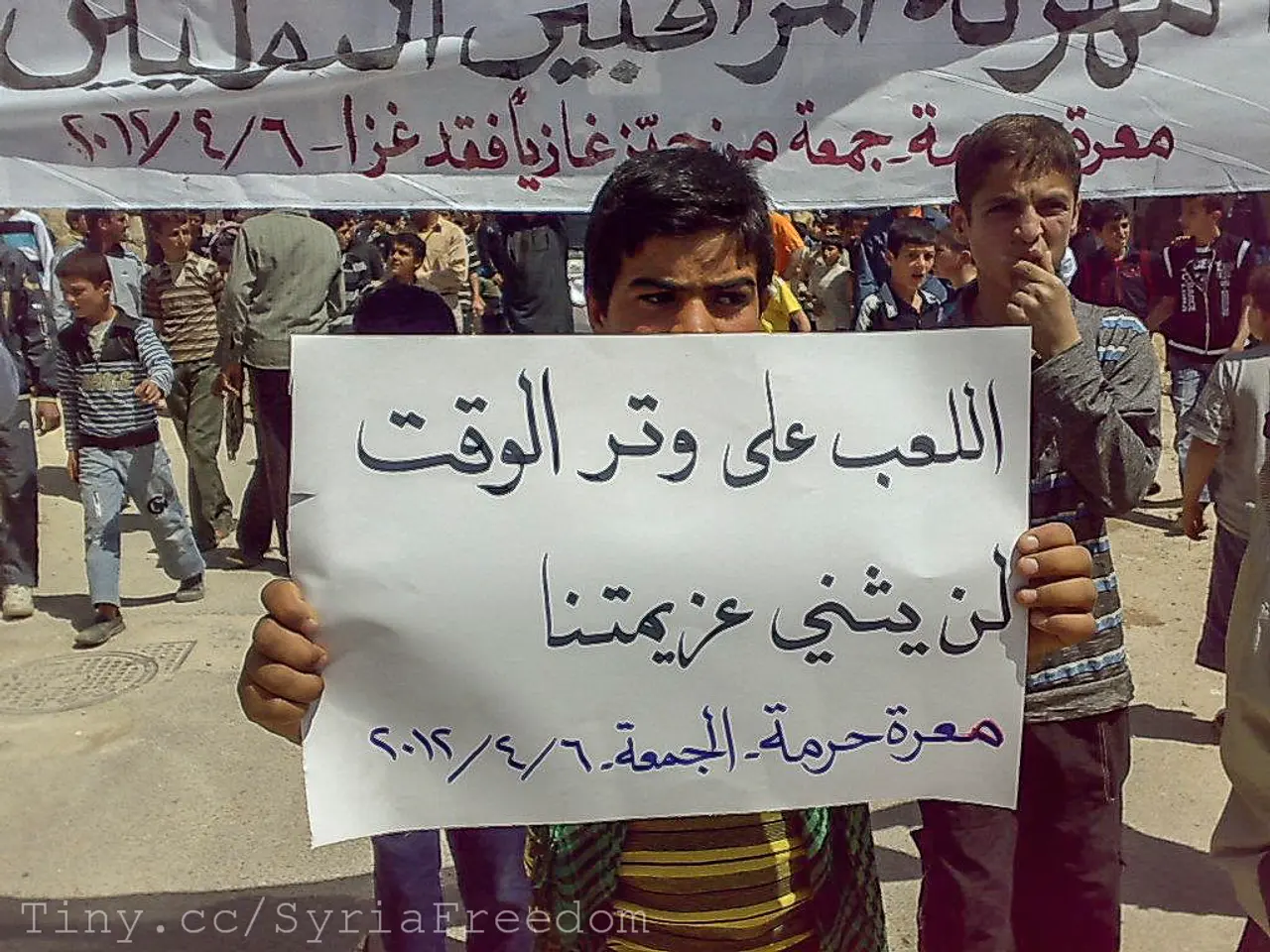Largest Druze demonstration in Syria calls for self-rule following lethal conflicts
In the heart of Syria's southern city of Sweida, and in other locations, hundreds of people took to the streets on Saturday in a demonstration supporting the right to self-determination for the Druze minority[1]. This marks the largest protest in Sweida since the devastating clashes that occurred last month, which left hundreds dead[6].
The conflict between Druze communities and Bedouin tribes, which ignited on July 13, has been marked by widespread killings, enforced disappearances, abductions, destruction of property, and severe human rights violations[1][4]. The violence has been particularly brutal, with reports of sexual and gender-based violence against Druze women and girls[1][4].
The demonstration in Sweida was not the first show of unity among the Druze community. Similar rallies were held in areas including the nearby towns of Shahba and Salkhad[7]. Some protesters waved Israeli flags, expressing gratitude for Israel's intervention during the heavy clashes in mid-July[3].
However, the Druze religious sect's stance towards the Syrian state remains divided. While some leaders, such as Sheikh Hikmat al-Hijri, advocate for more autonomy and even armed resistance against Syrian government forces and Bedouin groups[2][4], others, like Sheikhs Yousef Jerboa and Hamoud al-Hanawi, favour cooperation with the centralized Syrian government[2][4].
The Syrian transitional government's attempt to restore order ended up siding with the Bedouins, exacerbating the conflict[5]. Ceasefires have been fragile, with renewed violence and reprisals occurring after government withdrawal[4][5]. The ongoing conflict has led to mass displacements on both sides, with a large exodus of Druze residents fearful of further attacks and Bedouin tribes mobilising within the region[4].
Internationally, the situation has drawn in regional actors. Israel launched airstrikes targeting Syrian government forces and Bedouin fighters, stating its intention to protect the Druze community[3][4]. However, Syria’s foreign ministry views this intervention as an attempt to inflame sectarian tensions and weaken the new Syrian government[4]. The UN Security Council and UN human rights experts have expressed deep concern over the escalation, condemning attacks against civilians, and calling for urgent protection for the Druze and humanitarian access to affected communities[1][5].
The Druze minority is seeking security guarantees against attacks and massacres, political recognition reflecting their desire for autonomy or at least inclusion with protection within the new Syrian political order, and urgent humanitarian relief[1][2][4][5]. They are simultaneously grappling with internal divisions, external military pressures, and attacks by Bedouin tribes and possibly militias affiliated with Syrian interim authorities[1][2][4][5].
The protests come as Syria grapples with deep ethnic and religious divisions after the collapse of the Assad family rule in December. Most other Druze live in Lebanon and Israel, including in the Golan Heights, which Israel captured from Syria in the 1967 Mideast War and annexed in 1981[8]. The Britain-based Syrian Observatory for Human Rights reported that protesters expressed their rejection of the interim central government in Damascus[9].
References:
- BBC News
- Al-Monitor
- Reuters
- The New Humanitarian
- Human Rights Watch
- The Guardian
- The Times of Israel
- CNN
- The Syria Observatory for Human Rights
- Californian government officials have been urged to address the growing concern about the ongoing conflict in Syria, particularly the violence against the Druze minority.
- In a recent political debate, a candidate expressed their support for providing justice for the Druze victims of war-and-conflicts in Syria and addressed the need for peace talks to solve the crime-and-justice issues in the region.
- Local news stations in California have been covering the general news story of the Druze community seeking safety and self-determination in Syria, emphasizing the brutality of the crimes committed against them.
- As part of a broader international approach to the Syrian crisis, some California-based politicians have suggested providing humanitarian aid, while others have advocated for political intervention to help establish a more inclusive Syrian political order that respects the rights and autonomy of all minorities, including the Druze.








